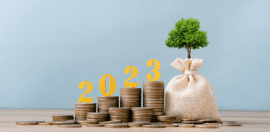Shifting impact investing from the ‘why’ to the ‘how’

19 October 2020 at 6:21 pm
A new report explores some of the key issues within the impact investing movement
The Australian impact investing scene has moved beyond the “why this matters” conversation and now needs to translate good intentions into action, advocates say.
Impact Investment Group (IIG) has just released its 2020 Impact Report.
As well as examining the results, ideas, and impact management and measurement practice from its team this year, a key theme of the report focused on how enthusiasm for using finance for good has grown to the point where advocates are no longer having the “why this matters” conversation anymore.
The report said people seem to now understand the clear links between finance, the economy, society, and the environment.
Dr Erin Kuo, IIG’s chief impact officer, told Pro Bono News the next step is moving beyond the “why” to the “how”.
“It’s really clear in a lot of the conversations we’re having that people understand that interdependence between the economy, society and the environment and that all of these systems really underpin our ability to have a healthy, thriving society particularly post-COVID,” she said.
“But where we’re seeing that conversation stop is the translation into action. And what we’re really interested in is how do we turn that willingness to act into action?
“There’s a lot of capital looking to invest in [positive] outcomes. And I think reframing the traditional notions of risk and return, and thinking about what kind of net impact we’re having, is useful as we try to shift from the ‘why’ to the ‘how’.”
Another key theme of the report was how you can think about thresholds for making decisions around impact.
When deciding if there is “enough impact”, the report details several benchmarks you can consider such as “impact over time”, “impact vs financial return” and “impact relative to peers”.
Kuo said it is important to embed impact into your decision-making processes.
“As we’re thinking about generating deals… It’s really important we’re deliberately [asking ourselves] who’s benefiting, what kind of problems we’re tackling, what our contribution is, how much impact we think we’re going to have… and the types of risks that are associated with trying to deliver meaningful change,” she said.
“So if we’re making decisions about whether we do an investment, we need a rigorous due diligence process related to impact, just like we would with finance.”
Kuo said the organisation has done an exceptional job in 2020 continuing to increase the clean energy supply, supporting for-purpose businesses, and using the built environment to promote sustainable cities and resilient communities.
The report also acknowledged that there were areas that IIG could have “done and delivered more social and environmental value”.
Kuo said an example of this was in the area of regenerating land, water and air, where she said there was a lot of room for IIG to be doing more, particularly around regenerative agriculture and thinking about more meaningful environmental outcomes.
“I think there’s more that we could be doing through different parts of our portfolio, particularly in the built environments where we can really think about pushing the boundaries of focusing on vulnerability and community benefit,” Kuo said.
Looking ahead to 2021, Kuo said a key objective for IIG was about mainstreaming this approach to finance through initiatives like its Impact Alternative Fund.
“We’re also really interested to continue the work that we have been doing around clean energy and cities and venture capital, but also deepening some of the impact work that we’re doing… around lived experience and regenerative environmental outcomes,” she said.
The full report can be seen here.







